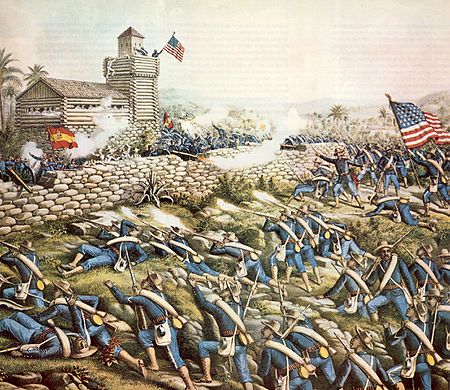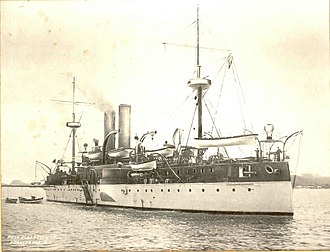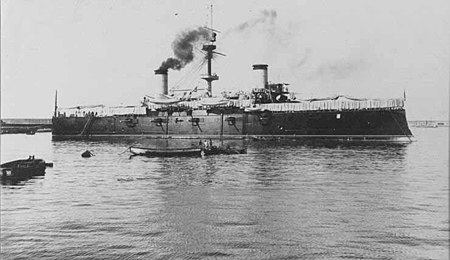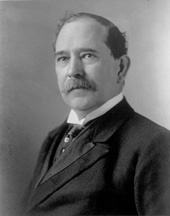You are using an out of date browser. It may not display this or other websites correctly.
You should upgrade or use an alternative browser.
You should upgrade or use an alternative browser.
America's Silver Era, The Story of William Jennings Bryan
- Thread starter CELTICEMPIRE
- Start date
Bryan popularizing basketball is a really fun detail, though I hope it’s at the expense of football and not baseball.
Sports will be featured throughout this TL. After Bryan dies there will be a chapter discussing his influence on American culture.
Where is the Bourbon Democrat third party candidate?
It's included under "others."
I think a Bryan presidency would more likely lead to this, but I'm a wingnut (I also miss Ray Speer's posts...). But
don't let me poo-poo your TL, carry on.
Maybe it will, I'm not giving anything away.
Interesting idea, what's Bryan's opinions on foreign expansionism? Does he go through with OTL's decision to swap US sphere of influence on the Philippines with acknowledgement on Japanese influence in Korea?
The next chapter will be focused on foreign policy.
Chapter III, Just War

During the election of 1896, proponents of American Imperialism opposed William Jennings Bryan. When he became President they lamented that America’s great opportunity to establish itself as a great power had been squandered by an idealistic pacifist. This was an inaccurate portrayal of the situation. The truth is that Bryan, while anti-Imperialist, was no pacifist. America would first learn this in December of 1897. There was increasing pressure on the President and Congress to declare war on Spain and liberate Cuba. “Yellow journalists” such as Bryan supporter William Randolph Hearst agitated for war. Within Bryan’s own cabinet there was also pressure. Secretary of War John T. Morgan is credited for convincing the President that war with Spain was necessary in the fall of 1897. The cruelties of Governor of Cuba Valeriano Weyler, who Spanish Prime Minister Cánovas[1], who had recently survived an assassination attempt, saw fit to keep in power, horrified Bryan, who called upon Congress for a Declaration of War. After some debate, Congress agreed and on December 10, 1897, America was at war with Spain. Bryan proclaimed that America was fighting not to conquer but to liberate. The war of liberation would be called the Cuban War.
-Excerpt from America's Silver Age, Edward S. Scott, Patriot Publishers, 2017.


(Left: Spanish Prime Minister Antonio Cánovas del Castillo, Right: Spanish Governor of Cuba, Valeriano Weyler)
The first actions of the War were on the sea, and all were in the US’ favor. On December 22, 1897, the USS Maine and the USS Texas, along with some smaller ships sunk the Spanish Cruiser Cristóbal Colón, along with gunboats Sandoval, Antonio Lopez, and Alvarado, as well as a few torpedo boats at the port of Cienfuegos. This was followed by American victories at Havana and Guantanamo Bay. In January, the invasion of Cuba began. On January 20, 1898, American forces landed at Guantanamo Bay, outnumbering the Spanish defenders nearby 2 to 1. In addition, thousands of Cuban rebels assisted US troops in battle. While the Spanish forces fought bravely they were defeated and they surrendered Guantanamo Bay on January 22. Santiago de Cuba fell a few days later. On February 4, 1898, the USS Maine bombarded Manzanillo as Americans and Cuban rebels made short work of the Spanish garrison. The battle featured a cavalry charge led by Theodore Roosevelt and Leonard Wood. By the end of February, American soldiers and Cuban Rebel fighters controlled much of the Western edge of Cuba.


(Top: USS Maine, Bottom: Spanish Cruiser Cristóbal Colón)
Spain made a final attempt to break American naval power, hoping to cut off US troops on the Island. This failed and Americans continued to advance in Cuba. In the Pacific, which had been a sideshow, the Spanish Navy was losing and the military was unsure if it could hold on to the Philippines as American ships approached Manilla. Meanwhile, a small force of American marines landed west of Havana on March 1. After Spanish forces failed to push them back, Spain called for a ceasefire. Cánovas, urged by Regent Maria Christina (whose son, King Alfonso XIII was only 11 at the time). wanted to end the war before things turned even worse for Spain. He was committed to his colonial empire and wanted to keep as much of it as possible. America accepted the ceasefire and soon the two sides were at the negotiating table in Paris. The US sent a delegation led by Secretary of State Henry Teller, who Bryan most trusted to represent the United States in Paris. The Spanish Prime Minister ordered the Spanish delegation to not accept an American annexation of the Philippines or Puerto Rico. Cánovas was an Imperialist hardliner, who earlier had stated that “the Spanish nation is disposed to sacrifice to the last peseta of its treasure and to the last drop of blood of the last Spaniard before consenting that anyone snatch from it even one piece of its territory.” By the summer of 1898, his policy had changed to one of abandoning Cuba to save the rest of the empire. To the Spanish delegation’s surprise, Teller didn’t ask for either. Cuban Independence was the main goal of the US delegation. The other demands were tolerable to Spain. The provisions of the 1898 Treaty of Paris were:
-Spain must relinquish control of Cuba, which is now to be an independent nation.
-Spain must pay 5 million Pesetas in reparations to Cuba.
-Spain must respect the rights of those living in its colonies and provide a form of self-government for the Philippines and Puerto Rico.

(Regent of Spain, Maria Christina)
Spain agreed to the demands made at Paris, with the intention of never fully enforcing the third provision of the treaty. Spain had been humiliated, but it could have been much worse. Many in the Spanish government were just happy to keep part of their empire and pivoted their focus from the Caribbean (Puerto Rico was much more loyal than Cuba and unlikely to rebel) to the Pacific. In America the public was thrilled, and after the divisive first year of Bryan’s Presidency, everyone was united in celebration. The war helped Bryan win the confidence of those who thought he was weak on foreign policy. Cuban War veteran Theodore Roosevelt would later claim that the war caused him to finally respect the President. Others were displeased, some because they opposed the war in the first place, but others because they thought Bryan didn’t do enough. Among these were journalists such as Joseph Pulitzer and politicians such as William McKinley. They criticized Bryan for leaving the Philippines and Puerto Rico in Spanish hands when. As Massachusetts Senator Henry Lodge would say, “he [Bryan] had a knife held to Spain’s throat, and then he just walked away. All that America gained was one naval base.”
The war also caused disagreements within the President’s cabinet. Secretary of War John Morgan, a former slaveholder, hoped to have an all-white army fight in Cuba. William Jennings Bryan found his proposal ridiculous, stating “Why would you turn down a man willing to die for his country?” Morgan, along with Navy Secretary Whitney, found themselves at odds with Bryan and Teller’s anti-Imperialism. They wanted America to annex Puerto Rico and the Philippines. In July of 1898, Bryan gave a speech to Congress in which he stated that the only time America should go to war is if the war is a Just War. This is a reference to Thomas Aquinas’ Just War Theory. Bryan said that the Cuban War met all the qualifications for it to be a Just War. First, he stated that the war was declared by a properly instituted authority, the United States Congress. Second, he stated that the war had a good and just purpose, the liberation of the Cuban people from their Spanish oppressors, and was not for self-gain. He stated that peace was the central motive even in the midst of violence; American troops fought the war against Spain with the goal of the liberation of Cuba in mind, and ended the war once the goal had been achieved. Congress would later pass the Just War Act, requiring every American War to conform to these principles. The remainder of Bryan’s Presidency was mostly peaceful.
-Excerpt from The Guide to the Executive Mansion, an in Depth Look at America's Presidents by Benjamin Buckley, Harvard Press, 1999.
1: OTL the Prime Minister was assassinated by an anarchist in 1897. After he died the dreaded Weyler was removed from his post in Cuba.
So the US pushes for the independence of Cuba, but doesn't push for the independence of the Philippines? Not that the Philippinos wouldn't fight a war of independence as in OTL, but still, they liberate the opressed Hispanic Cubans, but they didn't liberate the Asian Philippinos?
So the US pushes for the independence of Cuba, but doesn't push for the independence of the Philippines? Not that the Philippinos wouldn't fight a war of independence as in OTL, but still, they liberate the opressed Hispanic Cubans, but they didn't liberate the Asian Philippinos?
Bryan had a very limited goal in the War against Spain, and his goal was achieved.
In OTL, from Wikipedia:
While he argued for the US to take on the role of a protectorate to the Philippines
In OTL, from Wikipedia:
I'm aware, but Bryan flip-flopped on foreign policy OTL in the years between his first and second Presidential campaigns. It was difficult to gauge exactly where he was at. He had a lot of seemingly contradictory positions (pro-Hawaii annexation but anti-Philippine annexation, for example). Regardless, the Spanish promised that they'll be nice from now on, we'll see how that goes in another update.
Shouldn't this be in pre 1900?
While the POD is 1896, most of this timeline will take place during the 20th century, and therefore I am posting this in the After 1900 forum.
Rosa Luxemburg
Banned
Exceptions have been allowed in the case that an overwhelmin majority of the schedules timeline takes place post 1900The rules of this forum are pretty explicit.
"General discussion about alternate history scenarios where the divergence from real history happens from 1900 AD onward"
Shouldn't this be in pre 1900?
Technically you are correct, but this TL belongs more in After 1900 than before 1900. The POD is in 1896 and I plan on taking this into the 1930s at the least.
Spain can't hold the Philippines for very long either way, more so after this Cuban War. The Spanish Empire days was always number at this point. Either the Filipinos kick the Spanish out, Spain just leaves, or they sell it to someone else, and let them get their ass kick in by angry Filipinos.
Last edited:
Spain can't hold the Philippines for very long either way, more so after this Cuban War. The Spanish Empire days was always number at this point. Either the Filipinos kick the Spanish out, Spain just leaves, or they sell it to someone else, and let them get their ass kick in by angry Filipinos.
The Philippines will be covered in a few more chapters along with the other remnants of the Spanish Empire.
Ummm Interesting, an Earlier and more sucessful NBA ITTL?Nonetheless, copies of the short grainy film were distributed across the country, and it endeared Bryan to much of the public. It is uncertain whether Basketball would ever have attained the popularity it has today if it were not for Bryan.
Chapter IV, Let the Silver Era Begin!
Bryan’s first two years in office went well for him. 1897 had seen legislative victories (with some setbacks sprinkled in). 1898 saw America victorious against Spain. The 1898 midterm elections were a Democratic wave. The Democrats took the Senate and increased their majority in the House of Representatives. The House of Representatives was split between 224 Democrats, 119 Republicans, and 14 members of other parties such as Populist or Silver. The Senate had 47 Democrats, 39 Republicans, and 4 members of other parties. These third parties were in the process of merging with the Democratic Party. The 56th Congress’ first action would be to make Bimetallism official US policy by fixing the weight ratio of silver and gold coins at 16-1. America had officially entered its silver era.
-Excerpt from America's Silver Age, Edward S. Scott, Patriot Publishers, 2017.
Supporters of Free Silver were confident that the economic downturn inherited from the Cleveland administration was finally going to end. And some people’s situations did improve, most notably farmers. But by fall of 1899 it was clear that for many Americans, things were getting worse, not better. Bryan’s popularity dropped and the Republicans found new energy. It was obvious to everyone following politics that William McKinley was planning on a rematch and was confident about his odds against the incumbent. Meanwhile, several Bourbon Democrats were exploring possible challenges against Bryan at the 1900 National Convention. One name that was suggested was Navy Secretary William Whitney, who had resigned from Bryan’s cabinet in 1899. Whitney opposed Bryan in the 1896 election and was only chosen to appease Conservatives in the party. Disagreements over the Treaty of Paris were the ultimate cause of his resignation. He was replaced by Senator George Turner of Washington. He declined to run, instead opting for a peaceful retirement, he died in 1904.

(Navy Secretary George Turner)
Supreme Court Justice Stephen Field died in 1899. Field was an octogenarian conservative appointed by Lincoln. In 1898 he cast his vote in favor of the majority view in Smith v. McMillin, which ruled an 1897 child labor law to be unconstitutional. There was a rumor floating that the more conservative justices were delaying their retirement until Bryan left office. And Field stayed on the Court right up until his death. He was replaced by Judge Walter Clark, Associate Justice of the North Carolina Supreme Court. The influence of Conservatives on the US Supreme Court was waning. In earlier years, the Supreme Court was a largely conservative body, constantly striking down progressive legislation. While the Court would continue to do this at times, it would do so less frequently.
-Excerpt from The History of the Supreme Court, W. C. Adams, 1977.

(Walter Clark, Supreme Court Justice)
Bryan was about to enter another Presidential campaign, one where he, and many other Democrats, were uncertain of the result. This was in stark contrast with the great optimism of Republicans. So confident of victory was the Grand Old Party that the field of candidates for the 1900 Presidential race was crowded. In a cabinet meeting, Bryan reportedly asked “which Republicans running for President this year?” to which Milford Howard replied, “The better question, Mr. President, is which Republicans are not running for President this year?” Then Fred Dubois and Henry Teller, the two Republicans in Bryan’s cabinet, jokingly suggested that they were considering a run for the Republican nomination. Bryan had hoped that by 1900 he could count on his policies ushering in economic prosperity, but it hadn’t come yet. The battle for 1900 was going to be just as hard, if not harder, than 1896.
-Excerpt from The Guide to the Executive Mansion, an in Depth Look at America's Presidents by Benjamin Buckley, Harvard Press, 1999.
-Excerpt from America's Silver Age, Edward S. Scott, Patriot Publishers, 2017.
Supporters of Free Silver were confident that the economic downturn inherited from the Cleveland administration was finally going to end. And some people’s situations did improve, most notably farmers. But by fall of 1899 it was clear that for many Americans, things were getting worse, not better. Bryan’s popularity dropped and the Republicans found new energy. It was obvious to everyone following politics that William McKinley was planning on a rematch and was confident about his odds against the incumbent. Meanwhile, several Bourbon Democrats were exploring possible challenges against Bryan at the 1900 National Convention. One name that was suggested was Navy Secretary William Whitney, who had resigned from Bryan’s cabinet in 1899. Whitney opposed Bryan in the 1896 election and was only chosen to appease Conservatives in the party. Disagreements over the Treaty of Paris were the ultimate cause of his resignation. He was replaced by Senator George Turner of Washington. He declined to run, instead opting for a peaceful retirement, he died in 1904.

(Navy Secretary George Turner)
Supreme Court Justice Stephen Field died in 1899. Field was an octogenarian conservative appointed by Lincoln. In 1898 he cast his vote in favor of the majority view in Smith v. McMillin, which ruled an 1897 child labor law to be unconstitutional. There was a rumor floating that the more conservative justices were delaying their retirement until Bryan left office. And Field stayed on the Court right up until his death. He was replaced by Judge Walter Clark, Associate Justice of the North Carolina Supreme Court. The influence of Conservatives on the US Supreme Court was waning. In earlier years, the Supreme Court was a largely conservative body, constantly striking down progressive legislation. While the Court would continue to do this at times, it would do so less frequently.
-Excerpt from The History of the Supreme Court, W. C. Adams, 1977.

(Walter Clark, Supreme Court Justice)
Bryan was about to enter another Presidential campaign, one where he, and many other Democrats, were uncertain of the result. This was in stark contrast with the great optimism of Republicans. So confident of victory was the Grand Old Party that the field of candidates for the 1900 Presidential race was crowded. In a cabinet meeting, Bryan reportedly asked “which Republicans running for President this year?” to which Milford Howard replied, “The better question, Mr. President, is which Republicans are not running for President this year?” Then Fred Dubois and Henry Teller, the two Republicans in Bryan’s cabinet, jokingly suggested that they were considering a run for the Republican nomination. Bryan had hoped that by 1900 he could count on his policies ushering in economic prosperity, but it hadn’t come yet. The battle for 1900 was going to be just as hard, if not harder, than 1896.
-Excerpt from The Guide to the Executive Mansion, an in Depth Look at America's Presidents by Benjamin Buckley, Harvard Press, 1999.
Last edited:
Ummm Interesting, an Earlier and more sucessful NBA ITTL?
Possibly, it will be covered later, that's for sure.
Share: